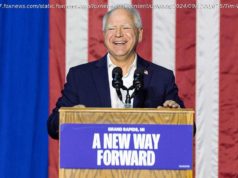Turkey is voting to decide whether to expand President Recep Tayyip Erdogan’s powers in a bitterly-contested referendum.
President Recep Tayyip Erdogan. (Lefteris Pitarakis, AP)
Multimedia · User Galleries · News in Pictures Send us your pictures · Send us your stories
Istanbul – Turkey was voting on Sunday to decide whether to expand President Recep Tayyip Erdogan’s powers in a bitterly-contested referendum set to determine the future course of the key Nato member and EU hopeful.
More than 55.3 million Turks are eligible to vote on sweeping changes to the president’s role which, if approved, would grant Erdogan more power than any leader since modern Turkey’s founder Mustafa Kemal Ataturk and his successor Ismet Inonu.
Right choice
Opinion polls, always treated with caution in Turkey, predicted wildly divergent scenarios with analysts saying the outcome remains too close to call despite the clear advantage in resources and airtime enjoyed by the ‘Yes’ campaign.
Voting in Istanbul along with his family, Erdogan predicted that « our people would walk to the future » by making the right choice.
After a stamina-busting campaign that saw insults flung in both directions, Prime Minister Binali Yildirim said: « Whatever choice comes out on top, our nation will make the most beautiful decision. »
Polling have closed and with vote counting usually speedily efficient in Turkey, the outcome should already be clear by nightfall. For the changes to be implemented the ‘Yes’ camp simply needs to win 50% plus one vote.
The opposition has cried foul that the referendum has been conducted on unfair terms, with ‘Yes’ posters ubiquitous on the streets and opposition voices squeezed from the media.
The poll is also taking place under a state of emergency that has seen 47 000 people arrested in an unprecedented crackdown after the failed putsch of July last year.
Executive bureaucracy
Three people were killed in a shootout in the garden of a school used as a polling station in the southeastern Diyarbakir region, the Dogan news agency said, but it was not clear if the fighting was linked to the election or simply a family feud.
If passed, the new presidential system would dispense with the office of prime minister and centralise the entire executive bureaucracy under the president, giving Erdogan the direct power to appoint ministers.
The system would come into force after the elections in November 2019. Erdogan, who became president in 2014 after serving as premier from 2003, could then seek two more five-year mandates.
24.com encourages commentary submitted via MyNews24. Contributions of 200 words or more will be considered for publication.






